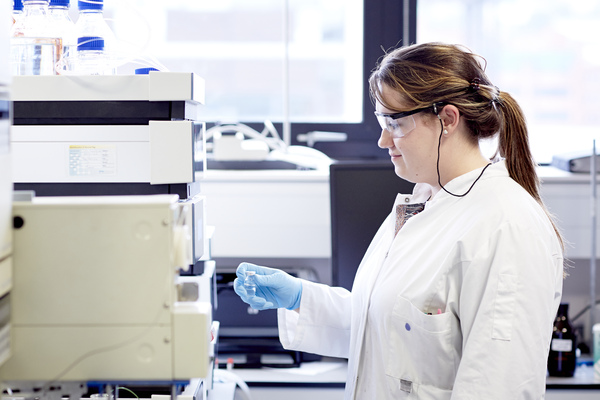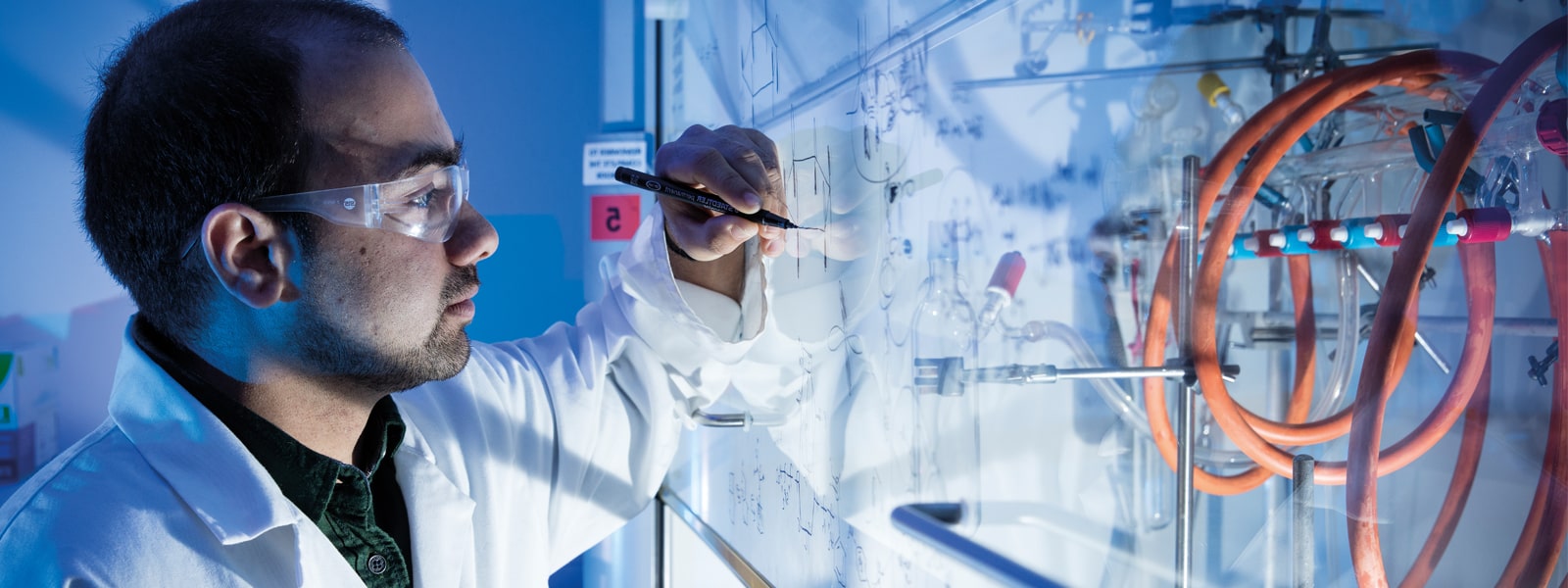Module Overview
This module aims to develop students' knowledge of the value of statistical data in analytical science and how this data can be used to design experiments alongside extracting meaning from data acquired from analytical experiments. The module will also aim to provide knowledge of statistical software and how to best utilise it to achieve reliable and meaningful results and their presentation in a wide range of professional contexts.
Module Overview
This module aims to provide specialist knowledge in the principles of atomic and molecular spectroscopy, instrumental fundamentals, design of experiments and sample preparation. Including case studies related to applications in specialist areas and recent advances.
The specialist knowledge is reinforced by the ‘hands-on’ practical component and will include use of the research instrumentation for collecting and analysing data, troubleshooting and method development/enhancement. The practical sessions will also involve following written experimental protocols, working in a small groups, and working to deadlines.
Module Overview
This inter-disciplinary module introduces the biology, physics, and chemistry behind some the most common and emerging sensors used in analytical science and their mode of action. The special challenges of bioanalytical methods provides a modern context for specific sensor development and case studies will be presented from forensic, pharmaceutical and healthcare contexts for development of sensors.
Module Overview
This module is designed to develop specialist knowledge in the principles of separation science and hyphenated methods of analysis, principally mass spectrometry. The programme introduces instrumental fundamentals, design of experiments, sample preparation and derivatisation. Including case studies related to applications in specialist areas and recent advances.
Specialist knowledge is reinforced by the ‘hands-on’ practical component and includes use of the research instrumentation for collecting and analysing data, troubleshooting, method development/enhancement. The practical sessions involve following written experimental protocols, working in a small group, and working to deadlines.
Module Overview
This module aims to develop specialist knowledge of the two major methods for structural analysis of molecular materials: NMR spectroscopy and X-ray crystallography. The physical basis of these techniques is explored in detail and related to instrumentation. Processes of sample preparation, the selection of appropriate modern experimentation and use of computational analysis to achieve full structure determinations are considered in detail.
The specialist knowledge is reinforced by a ‘hands on’ practical components and will include use of research instrumentation and software, to collect, process and analyse data, and troubleshoot method development. The practical sessions will also involve following written experimental protocols, working in a small group, and working to deadlines.
Module Overview
This module comprises two main components:
The first will provide fundamental knowledge concerning strategies for Sampling, Data analysis, Reporting, Quality assurance and Quality control, Numerical and IT skills, and Safety in relation to analytical science.
The second will provide the general introductory principles and a theoretical understanding of a range of instrumental analytical techniques and their applications. The module aims to provide the background knowledge needed for an understanding of the various principles discussed in greater detail in other modules
Module Overview
This module provides students with opportunity to apply chemical knowledge and laboratory skills to an extended practical research study. This is designed to further develop professional skills including the use of online literature and chemical data searching, the ability to critically review relevant published literature, and written and oral presentation of research activities.
Module Overview
This module aims to develop systematic personal and professional development of a student in a specialist area of chemistry to enhance employability. This is achieved through development and execution of a personal learning plan designed using a process of self-reflection around five development themes: personal development; professional skills development; technical skills development; research interests; career development.




